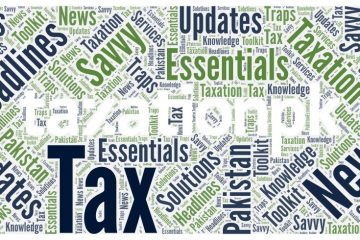When receiving foreign remittances in Pakistan, understanding the tax implications and savings opportunities is essential to comply with regulations and minimize potential liabilities. Here’s how the required documentation plays a role in saving on taxes and avoiding complications:
Tax Implications of Foreign Remittances
- Exemptions on Foreign Remittances:
- Under Pakistan’s tax laws, foreign remittances sent through official banking channels are generally exempt from income tax if proper documentation is maintained.
- These exemptions apply because such remittances are treated as non-taxable income.
- Risk of Tax Liabilities:
- If you fail to maintain or provide the required documentation (PRC and SPRC):
- The remittance may be considered unverified income.
- The FBR could categorize it as taxable under regular income tax slabs.
- The higher your taxable income bracket, the higher the tax rate applied.
- If you fail to maintain or provide the required documentation (PRC and SPRC):
- Purpose of Remittance:
- The stated purpose of the remittance (e.g., personal savings, business investment, family support) impacts its tax treatment.
- Incorrect or missing purpose codes might lead to misclassification and tax scrutiny.
Which Documentation is a Must to Saves Taxes
- Proceed Realization Certificate (PRC):
- The PRC serves as proof that the funds were received as foreign remittance via official channels.
- It includes details like the remitter’s name, transaction purpose, and conversion rates, which authenticate the source of funds.
- Without a PRC, the FBR might not recognize the transaction as exempt foreign income, leading to unnecessary tax payments.
- Statement of Proceeds Realization Certificate (SPRC):
- The SPRC provides a consolidated record of all remittances received during a financial year.
- This document helps demonstrate a clear audit trail if the FBR reviews your financial records.
- It reduces the risk of errors or omissions in tax filings and ensures compliance.
Practical Tips for Maximizing Tax Savings
- Always Request Documentation:
- Ensure you receive the PRC immediately after every remittance transaction. If you don’t, contact your bank and request it in hard or electronic form.
- Annually, collect the SPRC to maintain a full record of all transactions.
- Register Your Email with the Bank:
- Register an active email address with your bank to receive the ePRC automatically.
- Verify Transaction Purpose:
- When sending or receiving remittances, ensure that the transaction’s stated purpose is accurate and aligns with the remittance’s actual use.
- Keep Records Secure:
- Maintain an organized file of all PRCs and the annual SPRC. These documents act as evidence in case of FBR inquiries.





